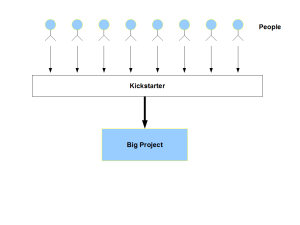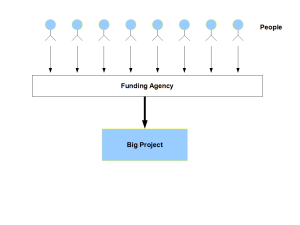
Private Competitions and Crowdfunding Sources to Fund Bioinformatics Research
We would like to point our readers to a number of private channels for getting funds to start new projects. Please let us know, if we missed something and we can add it to the list.
-——————————
Convey and Nimbix
The Accelerated Genomics Cloud Promotion
Convey and Nimbix are giving away $25,000 of cloud processing for genomics applications.
To give researchers access to world-class HPC resources and to show them that heterogeneous cloud computing is extremely powerful, yet simple and easy to use, Convey and Nimbix are offering qualified applicants free runtime. Top applicants may receive up to $1000 worth of runtime. Remaining qualified applicants will receive $500 worth. First awards will be granted as soon as the application review process allows. The promotion will end July 1 or once all funding has been awarded. Therefore, interested participants are encouraged to apply quickly by registering.
The Convey-Nimbix cloud genomics promotion launched on April 30, 2013 and ends July 1, 2013, or once all funding has been awarded.
-—————————
Cycle Computing
BigData, meet BigCompute: 1 Million Hours, 78 TB of genomic data analysis, in 1 week
Cycle Computing BigScience Challenge Overview
About a year ago we were very excited to announce the Challenge, a contest aimed at breaking the computation limits for any researchers working to answer questions that will help humanity. We asked researchers all over the world to think of normally unanswerable computational science questions, i.e. science that was limited by the compute power they had available, describe their efforts and how access to a Utility Supercomputer could push their research forward, by making impossible science, possible.
As our part of the challenge, Cycle Computing offered $10,000 of compute time on a Utility Supercomputer, with Amazon Web Services kindly providing an additional $9,500 worth of compute time to the contest winner. From a field of many researchers doing fantastic work to benefit humanity, our panel of judges including industry luminaries such as Kevin Davies of Bio IT World, Peter Shenkin of Schrodinger, Jason Stowe of Cycle Computing, and Matt Wood of AWS, chose Alan Aspuru-Guzik of the Harvard University Chemistry department and the Harvard Green Energy Project as the Runner-up, and Victor Ruotti from Jamie Thomsons Stem Cell Lab at the Morgridge Institute for Research as the BigScience 2011 challenge winner!
-—————————–
Innocentive
At Innocentive website, individuals or companies list challenging problems and award for solving them. Everyone is encouraged to join and solve those problems, and the award goes the top performer. You can check the existing problems here.
The following one is highly relevant to topics we cover, although the amount offered is far less than $100 million by US government for doing buzzword- driven science.
Identify Organisms from a Stream of DNA Sequences
AWARD: $1,000,000 USD | DEADLINE: 6/30/13 | ACTIVE SOLVERS: 2535 | POSTED: 12/28/12
This is a Reduction-to-Practice Challenge that requires written documentation and delivery of source code implementing an algorithm that solves the problem. A real-time online scoring utility and leaderboard will be available for this Challenge beginning 13-Feb.
-————————————-
Kickstarter and other Crowdsourcing Websites
Kickstarter used to fund small projects, but the amount of money being raised increased substantially.
FORM 1: An affordable, professional 3D printer - 2,068 backers - $2,945,885
Oculus Rift: Step Into the Game - 9,522 backers - $2,437,429
3Doodler: The World’s First 3D Printing Pen by WobbleWorks LLC. - 26,457 backers - $2,344,134
Here is a nice summary of other crowd funding websites. They all take a cut from the money donated by people, but the cut is much smaller than what parasites take from taxes (see below).
-———————————–
Difference between Government-funded Research and Crowdfunded Research
Following two figures show the primary difference between government funded and crowd-funded research.


Confused? Haha, it is because there is no real difference. All money ultimately come from the people. In case of ‘government funding’, the money as tax is collected by force and you are made to feel bad for not paying it. In case of crowd-funding, the sponsorship is voluntary, project is well-defined and you are made to feel good to pay for it. Moreover, in the first case, a large part gets wasted before a small part goes into sponsoring research, and increasing amount from that small part is being taken away by buzzword-driven scientists.
-——————
“We Need Government Agencies, Because Crowd-sourcing Will Never Fund Math and Other Basic Science”
Please express your opinion in favor of and against the above claim and we will include those here.